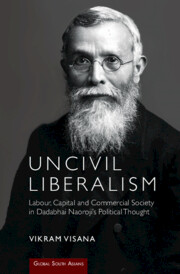
- Cited by 2
-
Cited byCrossref Citations
This Book has been cited by the following publications. This list is generated based on data provided by Crossref.
HOLLEY, JARED 2024. Racial Equality and Anticolonial Solidarity: Anténor Firmin’s Global Haitian Liberalism. American Political Science Review, Vol. 118, Issue. 1, p. 304.
Tan, Benjamin R. Y. 2024. Hobson on White Parasitism and Its Solutions. Political Theory, Vol. 52, Issue. 1, p. 120.
- Publisher:
- Cambridge University Press
- Online publication date:
- September 2022
- Print publication year:
- 2022
- Online ISBN:
- 9781009215527


